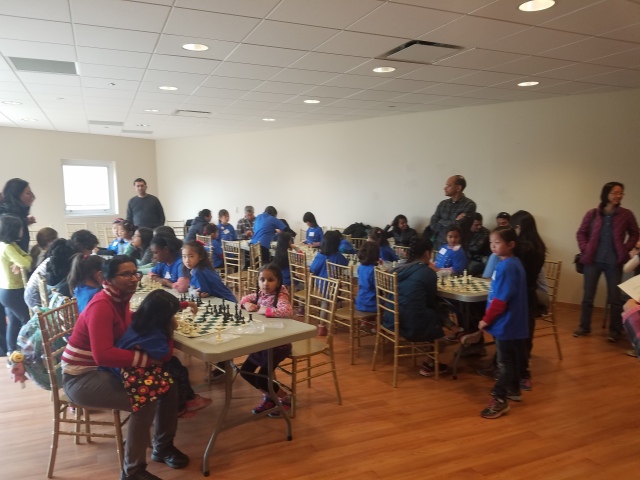“Wait, are you the only girl here?”
Ever since a close friend asked me that question years ago, I haven’t been able to push it out of my head. How is it that at basically every chess tournament, in a room of hundreds of people, I was one of maybe a couple dozen women?
Other startling details started popping up everywhere for me, like how in the list of the top 100 players in the world, there is only 1 woman. In the list of the top 100 players in the nation, there are only 2 women. I remembered how when I first learned chess in elementary school, there were plenty of girls in the club but a year later, I was one of the only girls still actively playing.

In order to try and combat this gender gap, I started the All-Girls Chess Camp back in 2014 which tries to remove potential social and financial barriers preventing young girls from becoming involved in the game. The camp provides a safe and comfortable environment for young girls to get to know other girls interested in the game and learn from the top junior female players in their area. To make sure that financial situations are never a problem, each participant gets to walk away with a chess set and a basic strategy book to facilitate continued learning after the camp. The most rewarding moment of the camp so far, and a testament to the potential it has, was when two girls from the first camp came back to teach this last year.

Unfortunately, the materials and work put into the camp to make it happen do not come free. Especially with our expansion to the Long Island and Washington, D.C. area this last year, we need funding more desperately than ever. It takes about $1,500-$2000 to run a single camp (dependent on size of the facility and as such the number of participants we can accept) and we simply are not able to provide the funding for all three locations and potential expansions without your help. Please help us bring this wonderful game to more girls and help create a safer and more comfortable environment for girls in the game overall, a donation of any amount counts.
In other news on the status of the camp, this last summer has been a great period of growth – we are now in the process of becoming an official non-profit organization and have also been accepted into the Clinton Global Initiative’s Commitment Challenge, a competition between 50 projects based on who can pull the most funding. It is also with this in mind that we ask for your generous support to help establish this program and other projects (e.g. tournament and chapters throughout the country).
To follow the All-Girls Chess Camp, you can visit our website, or like us on Facebook. If you have any inquiries about our program, please feel free to contact Alice at chess4girls@gmail.com and/or check out our sites below.
*To comply with the Commitments Challenge’s regulations, the maximum donation per individual is $250. All donation quantities are greatly appreciated.






